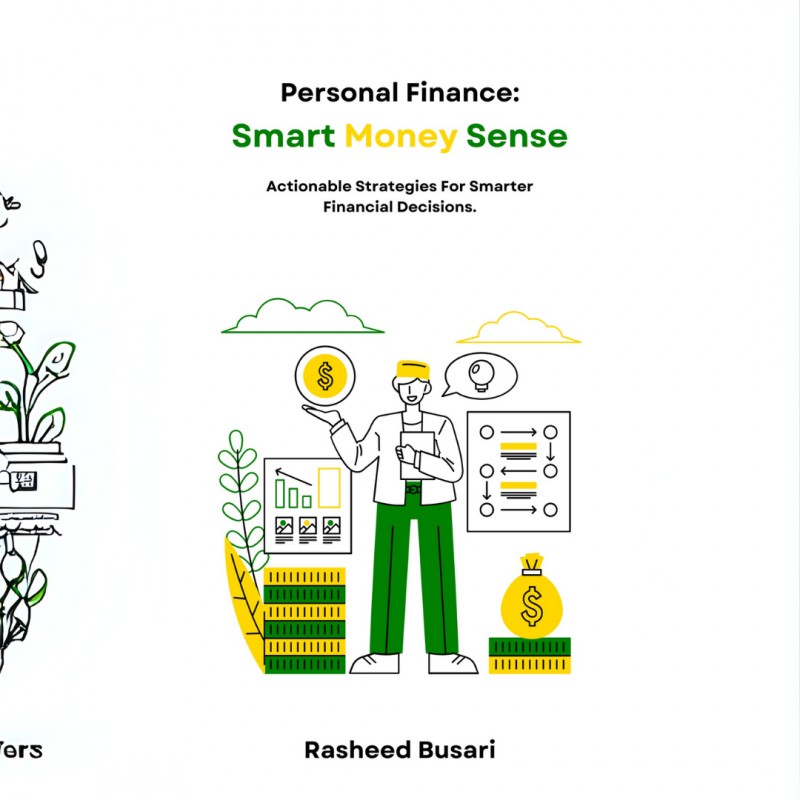Last Updated on 03/05/2025 by Rasheed Busari

Key Takeaways
- Passive income is not a luxury, it’s a necessity and a reality
- The reality is that extra income needs to be earn to have a decent standard of living
- Passive income can be done with a main primary job with little or no effort
- You can focus on one or more passive income ideas, focus your energy and time on them to yield the desired result of financial stability for a decent standard of living.
Related: Wealth Building 101: Why Accurate Financial Information Is Key to Financial Security
Imagine waking up to a credit alert, unexpectedly or even daily, without lifting a finger. Just a few naira coming into your account while you’re asleep or focused on your primary job. Sounds like a dream, right? Well, it’s possible.
Nigeria’s economy is in a state of deep uncertainty, and the financial reality for the average citizen has become increasingly difficult. With a current minimum wage of ₦70,000 (approximately $44), it is nearly impossible to cover the basic necessities: food, clothing, shelter, and healthcare, which define a decent standard of living.
In recent years, the cost of goods and services has more than tripled, pushing inflation to a staggering 33.10%. This has left many Nigerians with little to no disposable income for savings or investment, further widening the gap between income and survival. Relying solely on one source of income is no longer viable in today’s Nigeria.
Related: Profitable Side Hustle Ideas for the Working Class to Boost Income
To survive and stay financially afloat in these turbulent times, Nigerians must seek additional income streams, especially those that require minimal daily effort.
Passive income has become a crucial solution not just for economic survival but also for achieving long-term financial stability and freedom.
If you’re looking to earn extra money without quitting your day job, here are smart passive income ideas you can start with little or no effort:

Mutual Funds
Mutual funds are professionally managed pools of funds that invest in various assets. These funds include money market funds, equity funds, dollar funds, and bond funds, with average annual yields ranging from 20% to 30%, depending on the fund type and fund manager. For example, investing ₦10,000,000 in a money market fund at 22% per annum yields ₦2,200,000 in a year, with minimal involvement.
Pros
- Low-effort investment
- Professional fund managers handle the work.
- Ideal for the working class.
- Capital preservation is prioritized and sometimes guanranteed
Cons
- Poor fund manager decisions may reduce returns or erode capital
- Market volatility can impact fund returns
Treasury Bills (T-Bills)
Treasury Bills are short-term, government-backed instruments used to control money supply. T-Bills currently offer yields between 15% and 19%, based on tenor (91, 182, or 364 days).
Related: How to Invest in Treasury Bills: A Beginner’s Guide to Passive Income
Pros
- Government-backed, your capital and returns are relatively safe.
- Low or no risk
- Interest is paid upfront.
- Flexible tenors to suit your liquidity needs and liquidity planning
Cons
- Yields vary with economic conditions.
- Early termination attracts penalties, possibly affecting your principal.
Government Bonds
Government bonds are long-term debt instruments issued to finance major infrastructure projects. They offer yields between 15% and 25%, with tenors ranging from 2 to 20+ years.
Pros
- Steady quarterly income.
- Long-term and relatively safe.
- Suitable for retirement planning or wealth preservation.
Cons
- Selling before maturity can be difficult on the secondary market.
- Not ideal for short-term liquidity.
- Value may fluctuate in the secondary market.
Dividend Stocks (Shares)
Investing in shares for dividend income is one of the smartest long-term passive income strategies. While capital appreciation is great, earning consistent dividends from stable companies is a passive way to grow wealth.
Pros
- Regular income from dividends.
- Potential for capital gains over time.
- Some stocks pay 5–10% dividend yield annually.
- Long-term capital growth
- Annual or bi-annual dividend payouts
Cons
- Requires research and patience.
- Dividends are not guaranteed.
- Market volatility may reduce share value temporarily.
- Stock value is subject to market swings
- No guaranteed income (dividends can be suspended)
Commercial Property and Short-Let Rentals
Owning rental property (residential or commercial) is one of the oldest and most reliable forms of passive income. Beyond long-term rentals, Nigerians are now tapping into short-let markets (Airbnb, hotel apartments) for daily or weekly income.
Pros
- Steady monthly or daily cash flow.
- High returns if located in prime areas.
- Asset appreciates over time.
Cons
- High maintenance costs.
- Tenant-related risks (defaults, damages).
Online Businesses (YouTube, Blogging, Content Creation, etc.)
The digital economy has opened countless doors for passive income. You can now earn from YouTube ads, blog monetization, affiliate marketing, or selling digital products.
Pros
- Potential for daily income.
- Global audience reach.
- Scalable over time.
Cons
- Requires time, skills, and consistency.
- Requires niche expertise.
- Growth and income may take months.
Knowledge Monetization
If you’re skilled in a profession or have deep knowledge in any area, you can monetize it by creating online courses, writing eBooks, offering memberships, or consulting via YouTube
Pros
- Scalable with low running costs.
- Long-term content generates ongoing income.
- Establishes personal brand and authority.
- Evergreen content generates revenue for years
Cons
- Risk of content theft.
- Takes time and planning to build a loyal audience.
- Intellectual property risks
Also Read: Step-by-Step Personal Finance Planning for a Secure Financial Future
In today’s Nigeria, one income stream is no longer enough. Passive income is not just a luxury, it’s a necessity and a reality with a long game that promises financial stability. By starting with one or more of these options, you can build a steady flow of income that complements your main job and puts you on the path to financial freedom.





This is very insightful and sn eye opener.
Good job.
Pingback: How to Write a Business Plan That Banks and Investors in Nigeria Will Actually Fund. - the financial thrive
Pingback: The Next Big Thing in Nigeria: Nigeria’s Tax Reform Acts - the financial thrive